September 2023 HCH Newsletter
The Connection

In this newsletter:
- Program Highlights
- Astera Health: Helping the Amish Community
- Who Cares? The Real Patient Experience - An Interview with Author Melissa Butler
- MNCARES Update
- Learning Update
- Congratulations to Recertified HCH!
- Do you have a Health Equity Story?
- Noteworthy
Program Highlights
 The Health Care Homes (HCH) program has had a busy summer, and we are looking forward to continuing to work with all of our partners. As we approach the one-year anniversary of the introduction of the new advanced certification levels, we have seen increasing numbers of clinics recertifying at levels 2 and 3. A total of 11 clinics have certified at Level 2 and 70 clinics certified at Level 3. HCH staff will continue to support clinics in the certification and recertification process through one-on-one communication and a variety of upcoming learning opportunities.
The Health Care Homes (HCH) program has had a busy summer, and we are looking forward to continuing to work with all of our partners. As we approach the one-year anniversary of the introduction of the new advanced certification levels, we have seen increasing numbers of clinics recertifying at levels 2 and 3. A total of 11 clinics have certified at Level 2 and 70 clinics certified at Level 3. HCH staff will continue to support clinics in the certification and recertification process through one-on-one communication and a variety of upcoming learning opportunities.
The new HCH benchmarking process officially debuted in the beginning of July. While continuing to include the use of Minnesota Statewide Quality Reporting and Measurement System (SQRMS) quality measures in assessing performance, the new process places an emphasis on clinic self-identification of measurement priorities and associated quality improvement efforts. Responses have been very positive and HCH is looking forward to continuing the roll out of our new approach as more clinics recertify in the coming year.
The Health Care Homes Director position was posted in August and we hope to be able to announce the director by the end of the year.
Enjoy the fall weather and as always we are here to support you!
Astera Health: Helping the Amish Community
 The residents of rural Minnesota typically have an appreciation for yesteryear. With every car ride, one can see dozens of old buildings and backroads that hold decades of history. This appreciation is woven into the fabric of each small town, which is especially true in many Amish communities. Their traditions are often familiar, from a horse and buggy to their distinct clothing. Even while surrounded by industry and technology, their heritage and commitment to their beliefs remains unchanged. It is something to marvel at while pondering: How do they live? How do they give birth?
The residents of rural Minnesota typically have an appreciation for yesteryear. With every car ride, one can see dozens of old buildings and backroads that hold decades of history. This appreciation is woven into the fabric of each small town, which is especially true in many Amish communities. Their traditions are often familiar, from a horse and buggy to their distinct clothing. Even while surrounded by industry and technology, their heritage and commitment to their beliefs remains unchanged. It is something to marvel at while pondering: How do they live? How do they give birth?
Trusted partnership
The Amish communities around Wadena, MN are often served by dedicated midwives within their own communities. However, many of those midwives recently moved on or passed away, leaving these communities in a dire situation. Many expectant mothers are approaching their big day with no one to help them. To complicate matters further, they do not have modern amenities to support a complicated birth process. This situation prompted the Obstetrics (OB) team at Astera Health to begin an outreach program for Amish mothers. The program would include a home visit, routine health check and basic education by an Astera Health Midwife.
As an organization, Astera Health understands that not everyone has access to the care they need. The Amish are an example of this lapse in equity by the nature of their lifestyle. When this project was initially explored, it was met with resounding organizational support. “Yes! Buy whatever you need, and we will make it work,” said President and CEO of Astera Health, Joel Beiswenger. He and other staff members were so on board with the project that word quickly spread throughout the organization. This was a golden opportunity to live out the values of Astera Health.
Passing wisdom on
The visiting staff members were equipped with a portable massage bed, a handheld ultrasound computer, and a compact printer. The program garnered great interest from the Amish people from Wadena, Deer Creek, Sebeka, Bertha and the Eagle Bend area. Members of the OB team worked to find a solution so they could help more efficiently. A plan was hatched to start a program to replenish Amish birth attendants in the Amish communities. Astera staff organized a special class for Amish residents to center on the birthing process. This class was heavily attended by the Amish grandmothers who took over helping with deliveries.
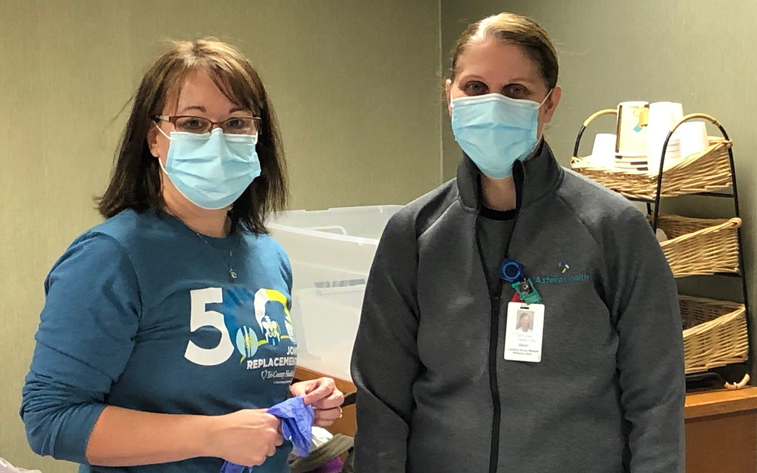 Dr. Adams and Dawn Dahlgren-Roemmich, CNM, taught the class about birthing techniques and preparations. The class was quite in-depth, with students learning about a wide variety of birthing techniques.
Dr. Adams and Dawn Dahlgren-Roemmich, CNM, taught the class about birthing techniques and preparations. The class was quite in-depth, with students learning about a wide variety of birthing techniques.
The outcome
The home visits and classes have led to a positive change in the Amish communities in the region. Outreach has improved access to care and health equity for a group of people that often get left behind. Sharing knowledge is just as important as sharing services. The Amish are well on their way to having self-sustaining traditional midwives that can deliver babies successfully. They are no longer afraid to seek help or visit the hospital. The OB department at Astera Health hopes these efforts will help the Amish flourish while reducing the risks for their expecting mothers.
Astera Health’s mission is to improve the health of the communities they serve. Providing OB care is just one way that they do this as they welcome their newest family members, including the Amish community. To learn more about OB services, please visit Astera Health's Birthing Services webpage.
The HCH program thanks Astera Health for sharing their experiences and insight, and for the work they continue to do to improve health equity in Minnesota.
Who Cares? The Real Patient Experience - An Interview with Author Melissa Butler
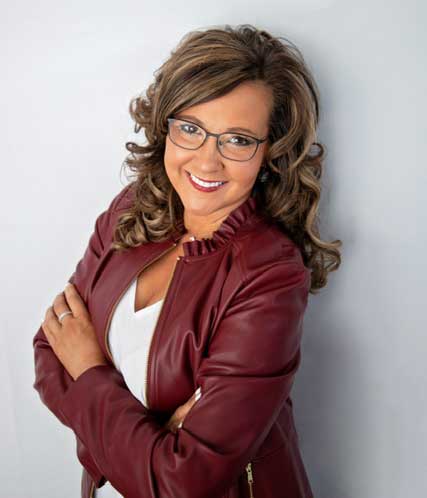 Tell us a little about yourself and why you wrote this book?
Tell us a little about yourself and why you wrote this book?
I’m a mom of a 27-year-old with complex medical needs. This is the book that I've been looking for, but it didn't exist. So, I decided to write it myself.
The title of your book is Who Cares? Why did you choose that title?
It was all based on a phone conversation when my son was about 5 years old. I was trying to advocate for my son on a phone call with his pediatrician. I was frustrated and rambling, and the pediatrician finally asked me, what is it that you want? And I said, I just want someone to care.
One of the standards for Health Care Homes is patient centered care. But your experience suggests that patient centered care is often just lip service.
We've been using the term patient-centered care for so long that we forget what it means. Although hospitals and clinics claim to be patient-centered, they often feel more health system-centered. For example, when my son was younger, I worked during the day, and he went to school. But we both had to take time out to make his doctor appointments. In one year, we had 60 doctor's appointments! It would have been nice to be able to combine some of those appointments.
Throughout the book, you offer examples of health providers who were kind, caring, and helpful. What can we learn from these examples?
We need to find out what is of value to our patients. Patients often have different goals than doctors do. For example, they may want to travel or have more friends. Providers need to think about the medical aspects of these goals. For example, what does it take to be mobile? My son's doctors were focused on solving an issue around his feeding tube. But that wasn't our goal. Our goal is to get my son into a day program to help him make friends.
You’ve been a strong advocate for the Health Care Homes program for many years. What would you like to say to our Health Care Home stakeholders?
I love seeing things that clinics are coming up with to serve their patients and their community. For clinics that are struggling to do that, it's often the little things that make a big difference. Solving social determinants of health is a big issue - but it's not as big as you think. You don't have to solve all of it. If you can solve ONE thing, you've made the other things easier. Start small. You can't do everything, but what can you do? You don't know what those things are unless you ask.
Melissa Butler, CPHQ, CPXP, is a Clinical Practice Consultant – Quality, for UnitedHealthcare Community Plan of Minnesota. Her book can be purchased at Barnes & Noble.
MNCARES Update

As fall begins, the Minnesota Care Coordination Effectiveness Study (MNCARES) team is analyzing data and writing papers, which will continue to be their focus for the next six months. The first three papers to come out of the study are available online. These papers describe characteristics of care coordination programs across the state and highlight themes and lessons from interviews with patients and care coordinators. Questions? Email the study team at mncares@healthpartners.com.
Solberg LI, Bergdall A, Ziegenfuss JY, JaKa MM, Whitebird RR, Chrenka EA, Beran MS, McDonald K, LaPlante B, Dehmer SP. Care Coordination in Primary Care: Mapping the Territory. The American Journal of Managed Care. 2023;29(10). Published online July 12, 2023.
Leaders in 42 care systems of various sizes and locations around Minnesota were surveyed about the variety in care coordination services. Findings include:
- 82% of large care systems, 40% of medium, and 25% of small had a social worker on their care teams; nearly all reported addressing both medical and social needs.
- Size of care system was not related to the type of patients targeted for care coordination or the services provided.
- Care coordination teams across care systems included: registered nurses (86%), practical nurse/medical assistants (55%), social workers (45%), nonclinical staff (40%), and community health workers (24%).
Though resources and capabilities differ, organizations were generally alike in their approach to care coordination.
Whitebird RR, Solberg LI, JaKa MM, Kindt JM, Bergdall AR, LaPlante B, Dehmer SP. The Impact of COVID-19 on Patients Receiving Care Coordination in Primary Care: A Qualitative Study. Journal of the American Board of Family Medicine. Published online June 15, 2023.
19 patients from 19 different care systems were interviewed. These patients were potentially high risk for being seriously affected by health care and social disruptions during the early COVID pandemic. The interviews revealed:
- There was little or no impact on these patients’ physical health or medical services.
- On the other hand, most reported major disconnections from family, friends, and community. With anxiety about their health, this seriously impacted mental health and wellbeing.
- Nearly all reported that their care coordinators were very helpful in providing support.
Patients with complex medical and/or social needs found their relationship with their care coordinator to be especially important during the COVID-19 pandemic.
JaKa MM, Beran MS, Andersen JA, Whitebird RR, Bergdall AR, Kindt JM, Dehmer SP, Winger M, Solberg LI. The Role of Care Coordination: A Qualitative Study of Care Coordinator Perceptions. Journal of Nursing Care Quality. Published online May 9, 2023.
19 care coordinators from various care systems were interviewed about what was important for helping the complex patients they served. Interviews showed:
- Identifying and helping patients with social needs that interfere with self-care actions is a priority.
- Strong support from clinicians and care system leaders helps care coordination programs be successful.
- The key skill needed for this work is the ability to build and maintain strong relationships with patients and their clinicians.
Making connections and building trust with both patients and clinicians are the foundation of care coordination.
Learning Update
![]()
Ready to get "back to school"? Health Care Homes is ready for you with a variety of free, accessible, CEU eligible learning opportunities. Visit the Learning pages on the HCH website for more information and registration links.
- Kicking things off is a 2-part webinar series on Social Determinants of Health, hosted by Dani Protivinsky from CentraCare. Care coordinators and system administrators are encouraged to attend!
- Part 1 on September 26 at noon will illustrate the process that CentraCare used to analyze what was needed to better address social determinants of health for their patient population.
- Part 2 on November 16 at noon we'll continue the discussion by focusing on system level solutions that were required.
- On October 12, HCH partners are invited to attend a day-long in-person workshop on Intercultural Effectiveness. Hosted by HealthFinders Collaborative, this interactive workshop will take a deep dive looking at how to assess and address intercultural effectiveness in your organization. The workshop takes place from 9:00 am - 3:00 pm at Bethel University in Arden Hills, MN.
- Mark your calendars for November 2 from noon - 1:30 pm for Peer-to-Peer Networking, when HCH care coordinators and partners will share their experiences with patient engagement. Learn from your peers how they are enrolling patients in care coordination, helping patients set goals, addressing challenges along the way, and figuring out when it's time to discharge them.
- Don't forget e-Learning! HCH has a library of e-learning modules that are available on demand. Over the summer, we reviewed our library to make sure everything is up to date. Let us know how it's working for you! Drop us a line at: health.healthcarehomes@state.mn.us.
Congratulations to Recertified HCH!
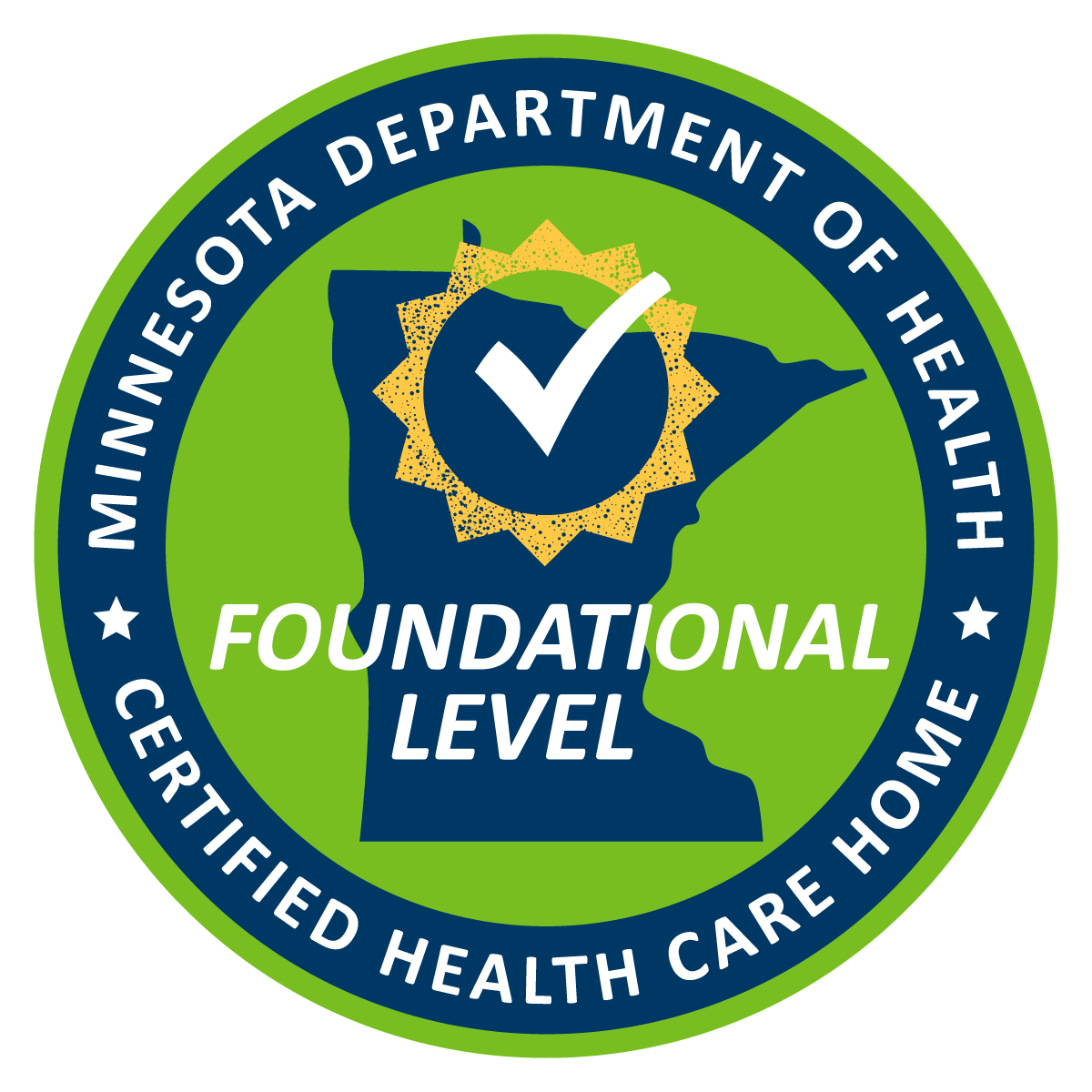
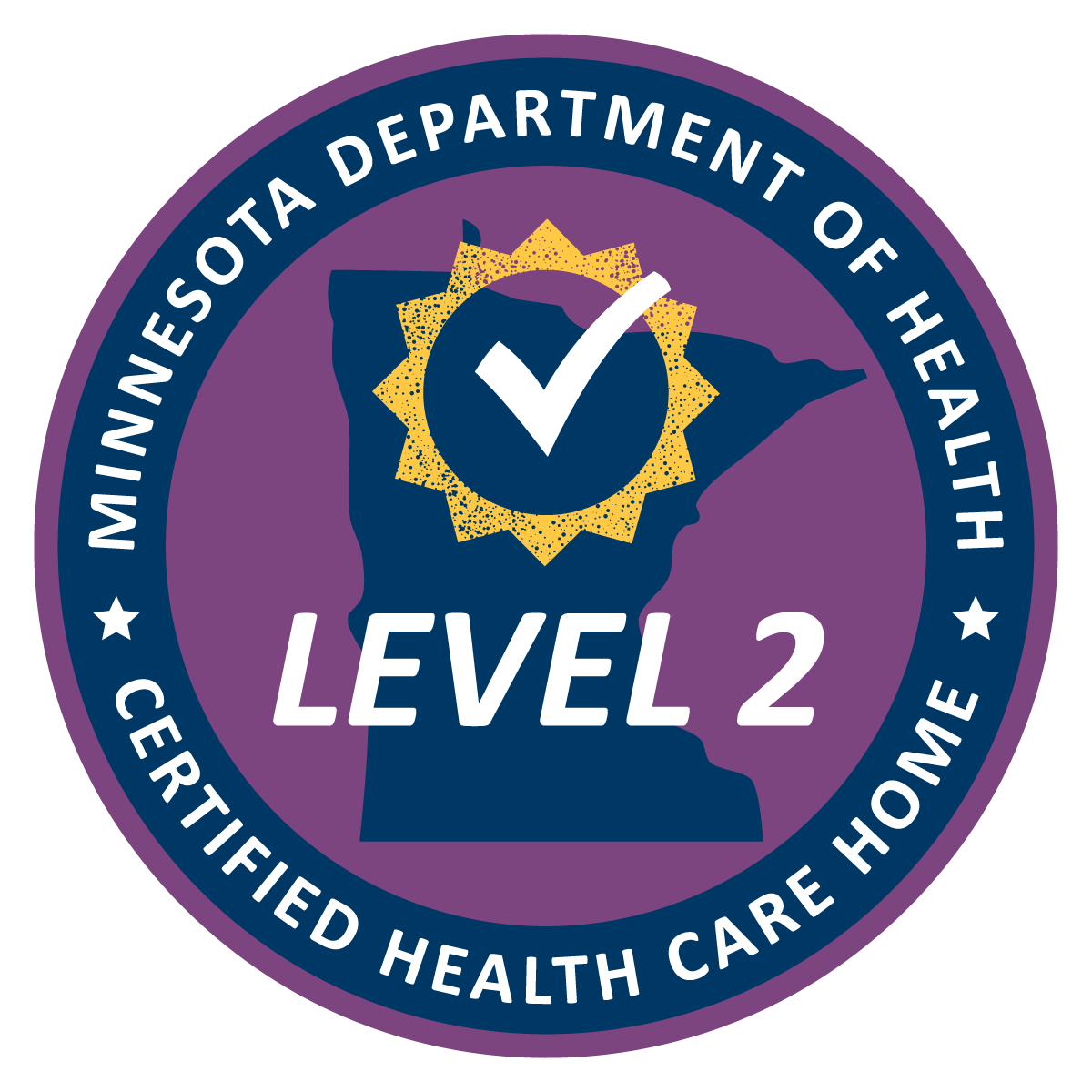
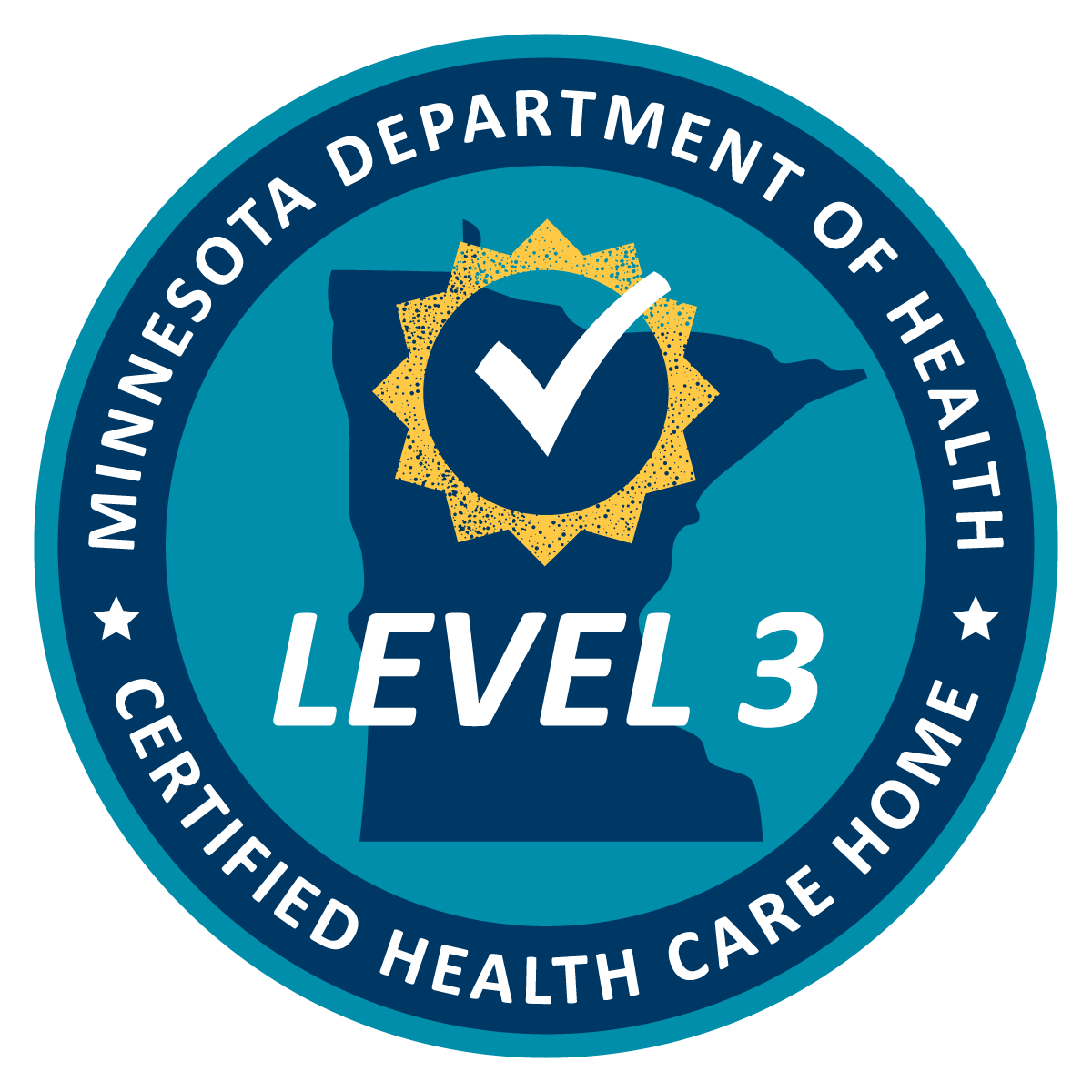
Clinics certifying and recertifying July - September 2023 are listed below. Congratulations to these and other certified clinics working every day to provide better health and better care at lower costs!
For more information regarding HCH certification levels, please go to the Level Progression webpage.
For a complete list of HCH certified clinics, please go to the Find Certified Health Care Homes webpage.
Recertification
Allina Health
- Level 3 - fifty one clinics
Entira Family Clinics
- Level 2 - ten clinics
Mankato Clinic
- Level 3 - six clinics
Do you have a Health Equity Story?
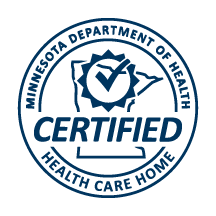
Certified Health Care Homes -
Do you have a Health Equity Story that you would like highlighted in the HCH newsletter?
Download the Health Equity Story Form and follow instructions for submission.
Noteworthy

- Build your skills to improve Pediatric to Adult Transition in your practice! Attend FREE, interactive virtual sessions with CME starting October 9, 2023. For more information and to register, visit Gillette Children's Health Care Transition Learning Collaborative webpage.
- The Innovation Center at the Center for Medicare & Medicaid Services (CMS) is now accepting applications for the recently announced Making Care Primary (MCP) Model. Eligibility requirements and additional model details can be found in the Request for Applications. Interested applicants should submit their application via web portal by Thursday, November 30, 2023 at 11:59 p.m. EST. The model will launch July 1, 2024, and will operate over a ten-year period. This model aims to strengthen coordination between patients’ primary care clinicians, specialists, social service providers, and behavioral health clinicians, to drive improved chronic disease prevention, fewer emergency room visits, and better health outcomes. Questions about the Application for MCP should be directed to MCP@cms.hhs.gov.
- Alomere Health has been named one of the Top 20 Rural & Community Hospitals in the nation by the National Rural Health Association. Alomere Health's hospital is the first in Minnesota to receive this honor in the Top 20 category. They serve the community of Alexandria, MN, and the surrounding central Minnesota region. For more information, read the article on Alomere Health's website.
- The Minnesota Hospital Association 2023 Workforce Report provides an overview of Minnesota's healthcare workforce from 2019 to 2023, with interactive information on vacancies, hiring rates, and workforce demographics, including metro-area versus non-metro-area diversity rates in healthcare workers.